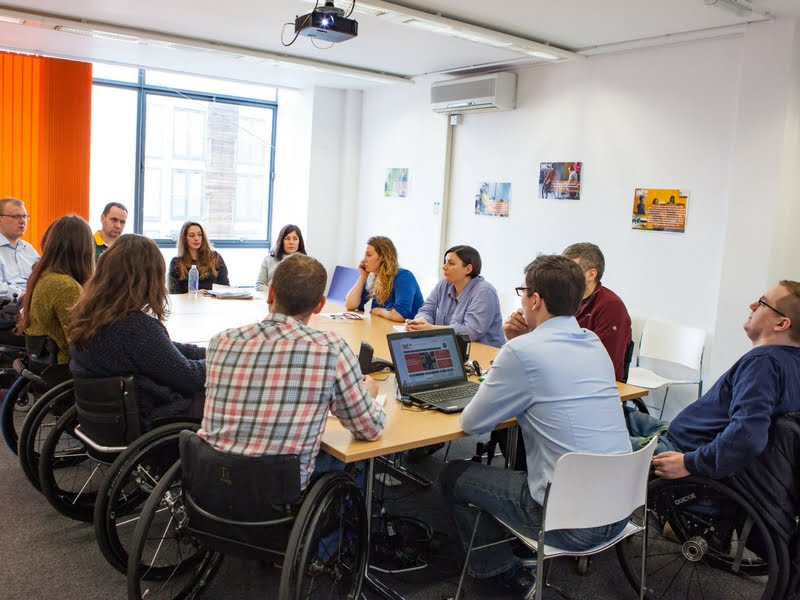Back Up’s research into ageing with spinal cord injury
5 July 2017

We’ve recently begun a research project into ageing with spinal cord injury and we’ve been speaking to a variety of people who’ve had a spinal cord injury for over 20 years. We’re still compiling the full results of the study, but we’d like to share some of our findings so far.
This research will inform the development of our services to ensure that people ageing with spinal cord injury have access to more tailored and effective support.
Of the people surveyed most acknowledge that they face new challenges as they age with their injury. They explain that with the right attitude, support and planning, many challenges can be addressed to maintain a full and happy life.
‘‘Looking after my skin isn’t as easy as 20 years ago. It’s a common shared story.’’ (Trish)
‘‘I didn’t think that the shoulder problems would come on as quickly as they did. I’ve had problems for quite a few years now, but in the last 8 months it has got a lot worse.’’ (Gary)
These medical issues may have no immediate solution. However, many of those surveyed still maintain a positive outlook on life because they prepared for the physical and mental challenges ageing might present, and they were willing to accept that they might need to make lifestyle adjustments.
‘‘I mean, I can’t get into the car on my own anymore; I’ve bought a van with one of those lifts on the back and a chair that swivels around inside that I can then slide on to. You see, I could get into a normal car but I couldn’t get back out, so I got the van two years ago and it’s proved a very good purchase.’’ (Gary)
‘‘We don’t know if the house will be suitable when we are old; we’ve tried to adapt in preparation for it but we don’t know what the future in the long-term holds. I always think that you should be mindful of what the future may hold but not forget to live in the present.’’ (Christa)
Independence is definitely a big issue for people as they get older, regardless of whether they have a spinal cord injury or not. We want to hold on to it as much as we can, so we make efforts to maintain it and get assistance when needed. Getting help should not be seen as a compromise however, more as an opportunity to enhance your independence.
‘‘When travelling I used to be much less willing to accept help; I’d struggle on. Now however, when going on long-haul flights I will take a buggy ride through the airport or have wheelchair assistance. So I guess with travelling, I am now having to think more about energy conservation than I used to. As far as I’m concerned, if support is available to you which will make things easier, then one should take advantage of it.’’ (Christa)
‘‘Physically, I don’t have any new challenges actually. I always try very hard to keep my weight down and I make sure that I drink enough. When it comes to the little independence that I’ve got, I try very hard to maintain it. I try to think about how my decisions will affect me in the long run.’’ (Carl)
There are certainly health implications of ageing with a spinal cord injury, many of which can’t be foreseen, and everyone will cope with those issues differently. But we do believe that with the right support, planning and mental attitude, life can still be very fulfilling.
‘I’m enjoying life. I’m driving down to Cardiff tomorrow in the sunshine, so I’m still doing things, but it’s just the sport side that’s gone. I still do a lot with my partner and my boy.’ (Gary)
If you’d like to learn more or get involved in our ageing with spinal cord injury research project, please get in touch with our Head of Outreach & Courses, Andy M, or call her on 020 8875 1805. SIA also provide fact sheets on ageing well with spinal cord injury.


